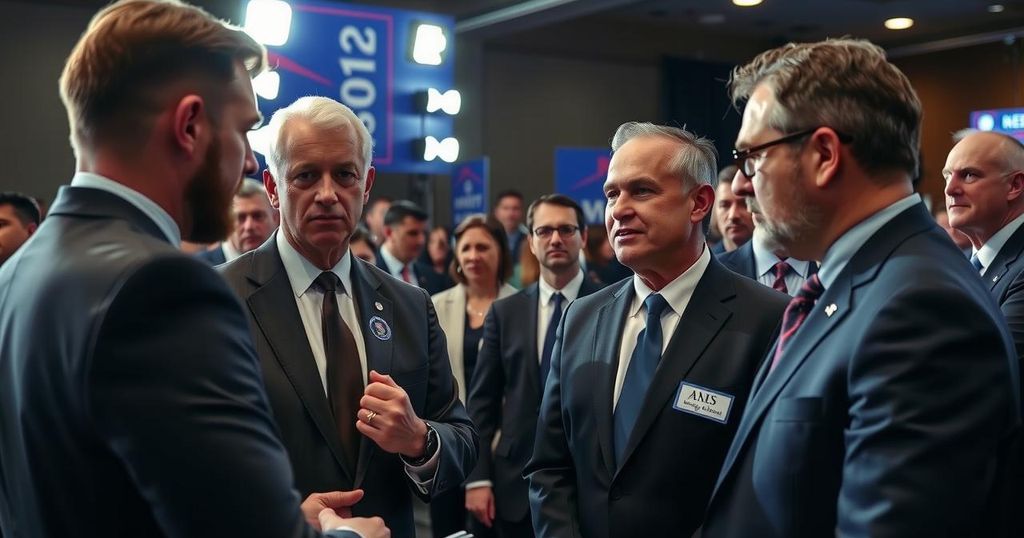Election Officials Challenge Elon Musk Amid Misinformation Concerns
Election officials are struggling to combat misinformation on X, as seen in a recent incident where Elon Musk posted false claims about voting irregularities in Virginia. Despite efforts by officials to fact-check Musk’s misleading posts, their responses often receive significantly fewer views. This highlights an overwhelming power dynamic on social media platforms, with Musk leveraging his vast follower base to promote potentially harmful narratives about elections. Michigans Secretary of State, Jocelyn Benson, notably countered Musk effectively, illustrating the need for accountability in public discourse.
Election officials are increasingly facing challenges in countering misinformation on social media platforms, most notably on X, formerly known as Twitter, where the billionaire owner, Elon Musk, has amassed over 200 million followers. A recent incident involving Mark Coakley, the registrar of Henrico County, Virginia, underscores this issue. While watching an NFL game, Coakley encountered a post by Musk that perpetuated false claims of fraudulent voting in his county. Despite Coakley’s prompt and factual rebuttal on X, which garnered significantly fewer views than Musk’s misleading post, the situation highlights the uphill battle election officials face against the reach and influence of Musk. Similarly, in Philadelphia, Musk shared a tweet alleging voter registration irregularities, prompting a response from Commissioner Seth Bluestein, which received vastly fewer views. Even Republican officials like Stephen Richer have attempted to engage Musk, offering factual information regarding Arizona’s election processes, yet their attempts have had little impact. Sam Woolley, a disinformation researcher, noted that Musk has utilized X as a platform to support political allies while spreading misinformation, thereby undermining the democratic process. Michigan’s Secretary of State, Jocelyn Benson, presented a notable exception to Musk’s dominance by directly countering his tweet about voter registration in her state. Her response not only matched but exceeded Musk’s post in terms of engagement, garnering 33.5 million views, thus setting a precedent for accountability in public discourse.
The interplay between social media and election integrity has grown increasingly complex, particularly with influential figures like Elon Musk utilizing their platforms to disseminate information that can significantly impact public perception. Musk’s ownership of X and his tendency to share politically charged content has raised concerns among election officials, who find themselves compelled to debunk misinformation while ensuring public confidence in the electoral process. Election officials, already burdened with their core responsibilities, must navigate the added challenge of countering misleading narratives spread by individuals with substantial online followings. This phenomenon has implications not only for the credibility of information but also for the functioning of democratic institutions.
The ongoing challenge of countering misinformation on social media emphasizes the need for greater responsibility among platform owners. Elon Musk’s actions on X have created significant hurdles for election officials as they strive to maintain the integrity of the electoral process. While some officials have managed to respond effectively, the unequal balance of reach and influence suggests a pressing need for strategies that can ensure truth prevails over misinformation in the public domain. This situation calls for a collaborative approach between tech companies and public officials to uphold democratic values and protect the electoral system.
Original Source: abcnews.go.com




Post Comment